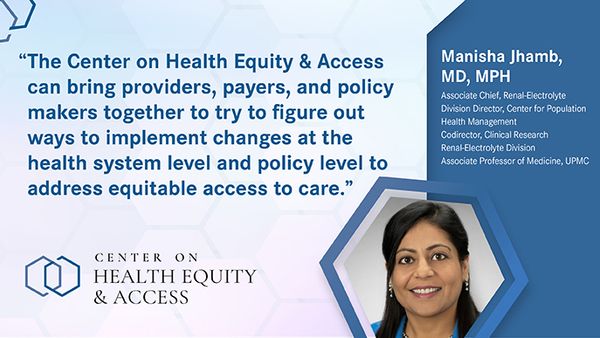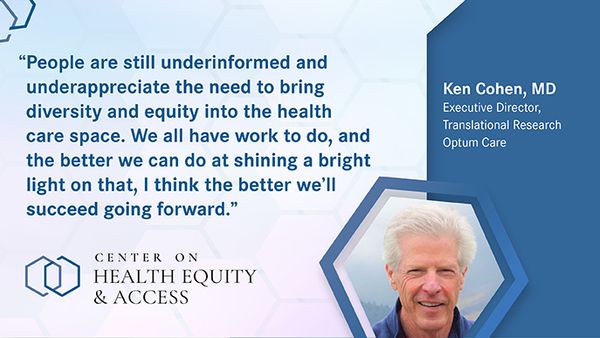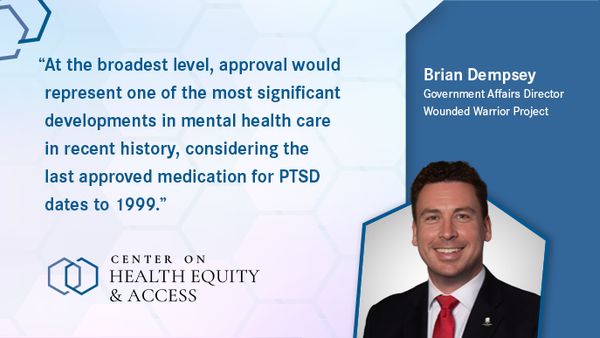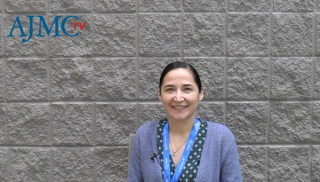
Center on Health Equity & Access
Latest News

Latest Videos

CME Content
More News
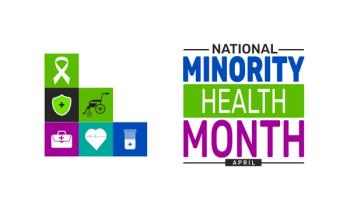
Accessing equitable health care is an ongoing struggle in the US for minority communities due to historical pretexts with new setbacks surfacing as recent administrative changes emerge, highlighting the urgent need for continued advocacy during National Minority Health Month.

The West Health-Gallup Healthcare Indices Study indicates that approximately 29 million people are unable to afford or access quality healthcare, the highest since 2021.

The findings appear as multiple lawsuits pit pharmaceutical companies against hospitals as well as HHS.

Countries located in sub-Saharan Africa would be most affected by all funding cuts to the international HIV response.

Dan Nardi, MS, CEO of Reimagine Care, claims that on-demand cancer treatment via telehealth is the future of oncology care delivery.

Findings presented at the American College of Cardiology Annual Scientific Session indicate that finerenone's efficacy in reducing cardiovascular death did not significantly differ across baseline bilirubin tertiles.

A bipartisan letter from lawmakers questions the legality of Robert F. Kennedy Jr's HHS changes and the lack of clear communication regarding their potential impact on American health.

Mobile self-management programs like that offered by Hello Heart can benefit employers and patients alike as they seek to manage and prevent heart disease.

In part 1 of this interview with Katrina Ortblad, ScD, MPH, she addressed bridging gaps in HIV care with pharmacy-based solutions.

Social determinants of health been long understood to influence health outcomes, and this new analysis explores more deeply the link between social risk exposure and rates of health care resource utilization.

STRIDE investigator Marc Bonaca, MD, MPH, University of Colorado School of Medicine, highlights how the data could provide insight into peripheral artery disease and type 2 diabetes treatment options.

Although the widespread adoption of remote patient monitoring during the COVID-19 pandemic expanded care access, particularly for underserved communities, challenges persist in sustaining this access.

Hispanic and Latino adults found that while preserving cultural identity may initially benefit health, socioeconomic factors like education level significantly impact diabetes and hypertension rates, highlighting the need for targeted health interventions across diverse subgroups.

Five abstracts showcase critical insights into women’s cardiovascular health, highlighting rising maternal mortality, elevated heart failure risk after ovary removal, and more.

Experts discuss the role of continuous glucose monitoring (CGM)-derived metrics, particularly glucose management indicator (GMI), in the new Healthcare Effectiveness Data and Information Set (HEDIS) diabetes care measures and ACO quality targets, and how CGM-specific metrics are being incorporated into the National Committee for Quality Assurance (NCQA)’s quality measures and the implications for health plans.

Documentation efficiency was higher among younger and male clinicians.

One study found that Black women were 3 times more likely to die of maternal deaths due to cardiovascular disease than White women.

A new Commonwealth Fund report estimates that states' collective gross domestic products would shrink by $95 billion, with total economic output declining by $157 billion.

The Trump administration has expressed interest in eliminating or changing the Division of HIV Prevention in the CDC, which could introduce gaps in addressing the HIV epidemic.

These results suggest that the rise in avoidable mortality is driven by widespread factors across the entire US.

Inclusion of female and Hispanic/Latino patients has increased over time, but most trials of metabolic dysfunction-associated steatohepatitis (MASH) still take place in high-income countries and have majority-White patient populations.

Non-Hispanic Black populations face the highest risk of death from chronic kidney disease (CKD)–associated cardiac arrest, a study found.

Addressing patients with chronic kidney disease requires a commitment to data, education, and community, specifically in those affected by social determinants of health (SDOH).

Experts discuss the relative value of different continuous glucose monitoring (CGM) metrics (glucose management indicator [GMI], time in range, glucose variability) in assessing glycemic control and how these outcomes vary across different patient populations.

Karen Winkfield, MD, PhD, addresses the importance of meeting patients where they are to expand clinical trial participation and remove barriers to trial access.



